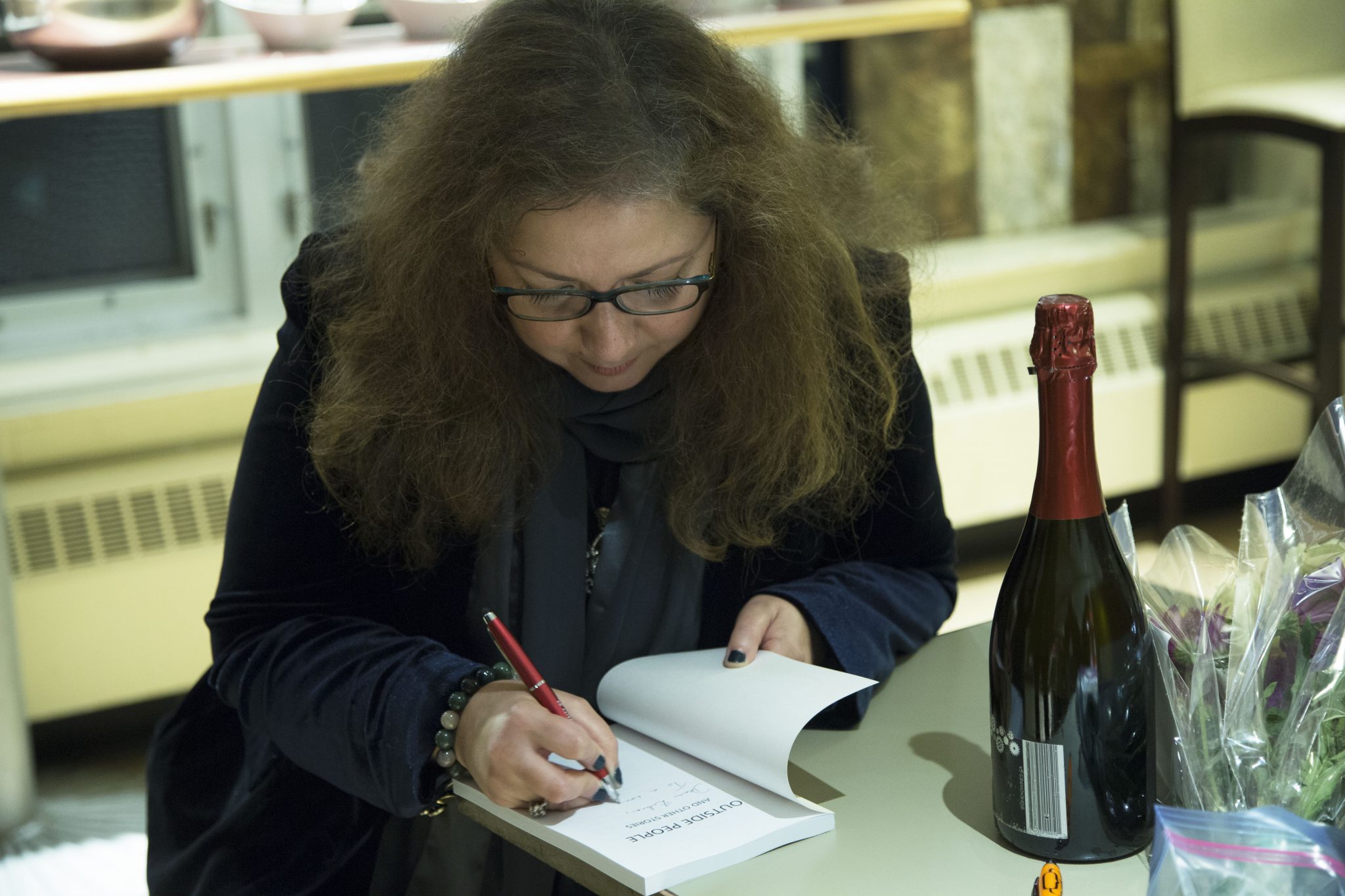Mariam Pirbhai launches Outside People and Other Stories


On Friday, Nov. 2 in Veritas Café, I had the opportunity to attend the launch party of associate English professor, Mariam Pirbhai’s debut collection of short stories entitled Outside People and Other Stories.
In her collection of short stories, Pirbhai highlights the experiences of minority groups in Canada who often times are placed at the margins of literature and society.
The party began with a book signing and excerpts from works written by students Jenna Hazzard and Kyleen Mcgrawe. From the start, I felt immersed in the intimate atmosphere of the writers, their work and the people in attendance.
In the interview that I later had with Pirbhai, she described the importance of student writers performing their work and feeling the immediate response.
“I want our students to have the experience that creative writing is not just a deeply private and isolated process, but there is another aspect to creative writing that is to share your work.”
During Pirbhai’s readings, she focused on four stories from her collection, which were enlightening, comical at times and to my own surprise, relatable to my experience growing up in a rural farming community in Ontario — something I did not anticipate until she started the story Chicken Catchers.
After the event and speaking with professor Pirbhai, I realized the importance of breaking down barriers and joining together in a collective identity, especially in the Laurier community, and making sure that we’re letting the Outside People in.
Chicken Catchers explains the life of a Jamaican migrant worker on a poultry farm in Ontario, who comes to the aid of a fellow migrant worker.
As I listened attentively to the reading, I was reminded of a family friend’s farm that I used to visit during the summer — although, unlike the character in Pirbhai’s short story, I fortunately never had to undergo the mission of catching chickens.
“In every way these stories were the Canada that he knew, the Canada that he’s born into, and the Canada that he’s so familiar with — the only difference is that it’s being seen from a whole new set of eyes”, Pirbhai said, when referring to the reflections of a fellow colleague.
I felt that the Canadian landscape that I knew, similarly to her colleague, was not separate from that of her characters.
Later when I discussed with Pirbhai about what it means to be a minority and her experiences emigrating from Pakistan, she explained that:
“I try to approach what it means to be a minority in more complex terms, and how sometimes, yes, it can be a very alienating and disconcerting experience to find yourself a minority.”
In the society that Canadians live in today, it’s important to be considerate of the diverse belief systems, cultures and religions that exist in our communities; nevertheless, those differences can be unifying and celebrated, as professor Pirbhai illuminates within her short stories.
At the end of our interview, I asked Pirbhai what students at Laurier could take away from Outside People.
“We are an increasingly more diverse group at Laurier … so I hope that the stories aren’t seen as somebody else’s stories, but rather are a reflection of that very diversity, and speak to students on those levels, because this is their community and collective.”
I could not have been happier that I went to the event because I not only got to learn more about Outside Stories, but also what it means to be Canadian today.
After the event and speaking with professor Pirbhai, I realized the importance of breaking down barriers and joining together in a collective identity, especially in the Laurier community, and making sure that we’re letting the Outside People in.


